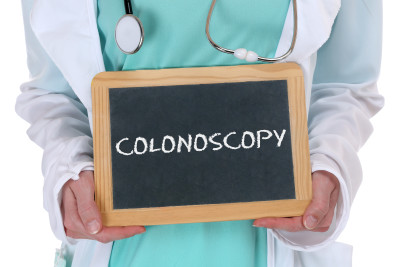Colorectal Cancer Awareness Month and the Importance of Early Detection
 March is National Colorectal Cancer Awareness Month. According to the American Cancer Society, colorectal cancer, or cancers of the large intestine (colon) and rectum, is the third most common cancer diagnosed in both men and women in the United States, excluding skin cancer. Researchers estimate that we will see over 97,000 new diagnosed cases of colorectal cancer in 2018 alone. While the risk of developing colorectal cancer is slightly higher for men (4.5%) compared to women (4.2%), both men and women should be aware of the risks of this deadly disease and its side effects. All adults should further efforts of early detection by receiving a colonoscopy based on age and gender-appropriate recommended screening guidelines. This March, commit to your health and talk to your doctor about your risks for colorectal cancer and when you should obtain your next screening.
March is National Colorectal Cancer Awareness Month. According to the American Cancer Society, colorectal cancer, or cancers of the large intestine (colon) and rectum, is the third most common cancer diagnosed in both men and women in the United States, excluding skin cancer. Researchers estimate that we will see over 97,000 new diagnosed cases of colorectal cancer in 2018 alone. While the risk of developing colorectal cancer is slightly higher for men (4.5%) compared to women (4.2%), both men and women should be aware of the risks of this deadly disease and its side effects. All adults should further efforts of early detection by receiving a colonoscopy based on age and gender-appropriate recommended screening guidelines. This March, commit to your health and talk to your doctor about your risks for colorectal cancer and when you should obtain your next screening.
Signs and Symptoms of Colorectal Cancer
You may be diagnosed with colorectal cancer if you experience any of the following symptoms:
- A change in bowel habits that could include diarrhea, constipation, or a narrowing of the stool that lasts for more than a few days.
- A feeling that you need to have a bowel movement that is not relieved by having one.
- Rectal bleeding.
- Blood in the stool that may give it a dark appearance.
- Abdominal pain, cramping, or gas.
- Weakness or fatigue.
- Weight loss.
The Importance of Receiving a Recommended Colonoscopy
Colorectal cancer is one form of cancer that can be prevented in some instances. A colonoscopy can identify cancer-indicating polyps so they can be removed before they evolve into cancerous cells. During the colonoscopy procedure, your doctor will examine your entire colon and rectum using a hollow, flexible, lighted tube with a tiny video camera affixed to the end. Once inserted, your doctor will use the camera to examine your colon for polyps, which, if found, can be removed during the procedure, immediately reducing your chances of a polyp developing into colorectal cancer.
When Should You Obtain a Screening?
Talk to your doctor about your unique health risks and about when and how frequently you should obtain a colonoscopy. The United States Preventative Task Force and the American Cancer Society recommend that men and women should receive a colorectal cancer screening starting at age 50, and every ten years after that until they reach age 75. If you are at a higher known risk for colorectal cancer based on family history, a personal history of an inflammatory bowel disease, or other risk factors, your doctor may recommend receiving your first colonoscopy before age 50. Follow this link for more information about colorectal cancer screening recommendations from the American Cancer Society.
Encourage the Men in Your Life to Get Tested
While both men and women should receive regular colorectal cancer screenings in consultation with their doctor, women should encourage the men in their lives to be tested. Due to perceptions of the uncomfortable nature of the exam and its necessary preparatory work, some men tend to be apprehensive and choose to procrastinate regular colonoscopy screenings. Remind the men in your life of the importance of early detection, the risks that men face, and how much you need them to live a long and healthy life with you.
If you believe you may be at a risk of developing colorectal cancer, or if you believe you may already be experiencing symptoms, talk to your doctor today.
